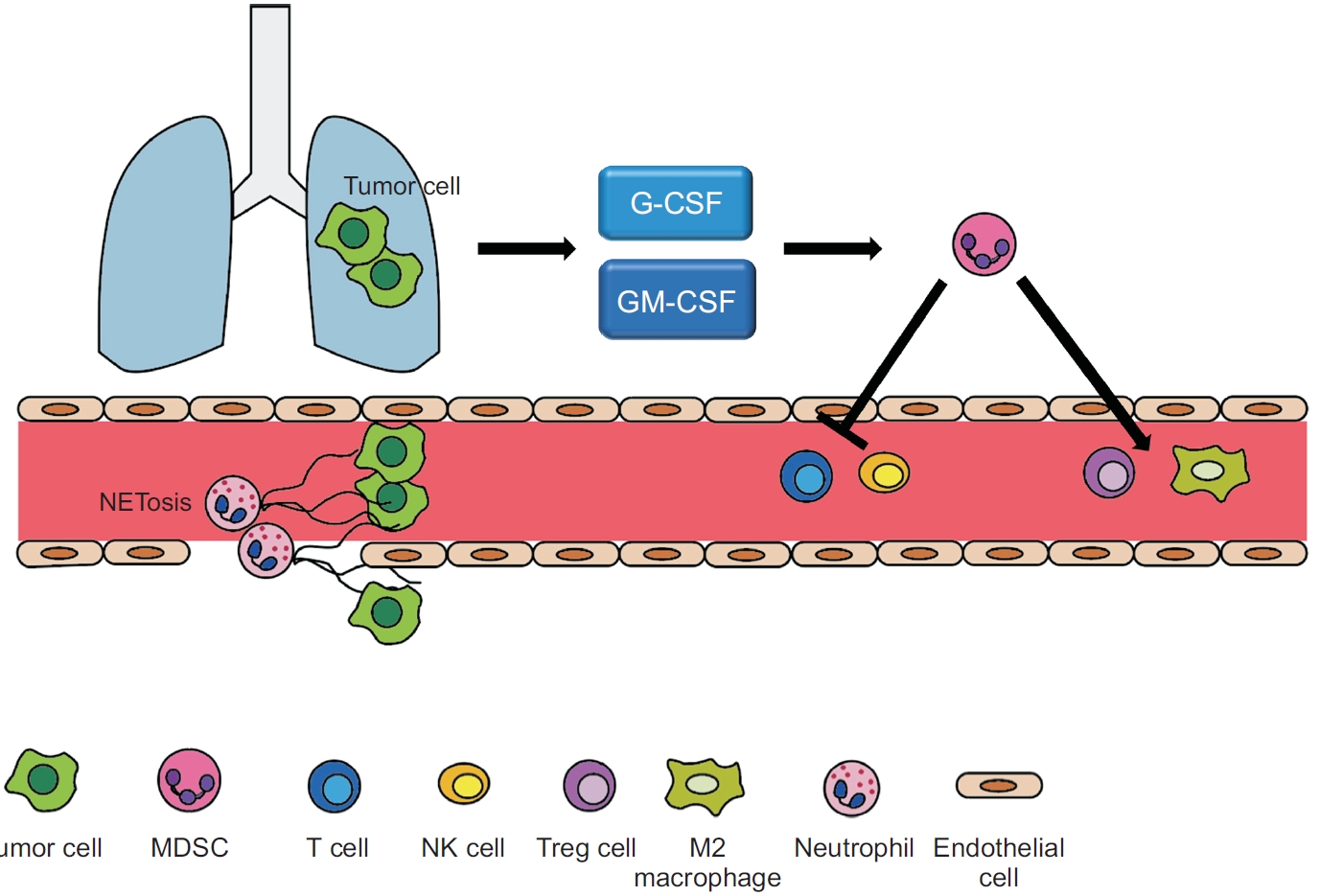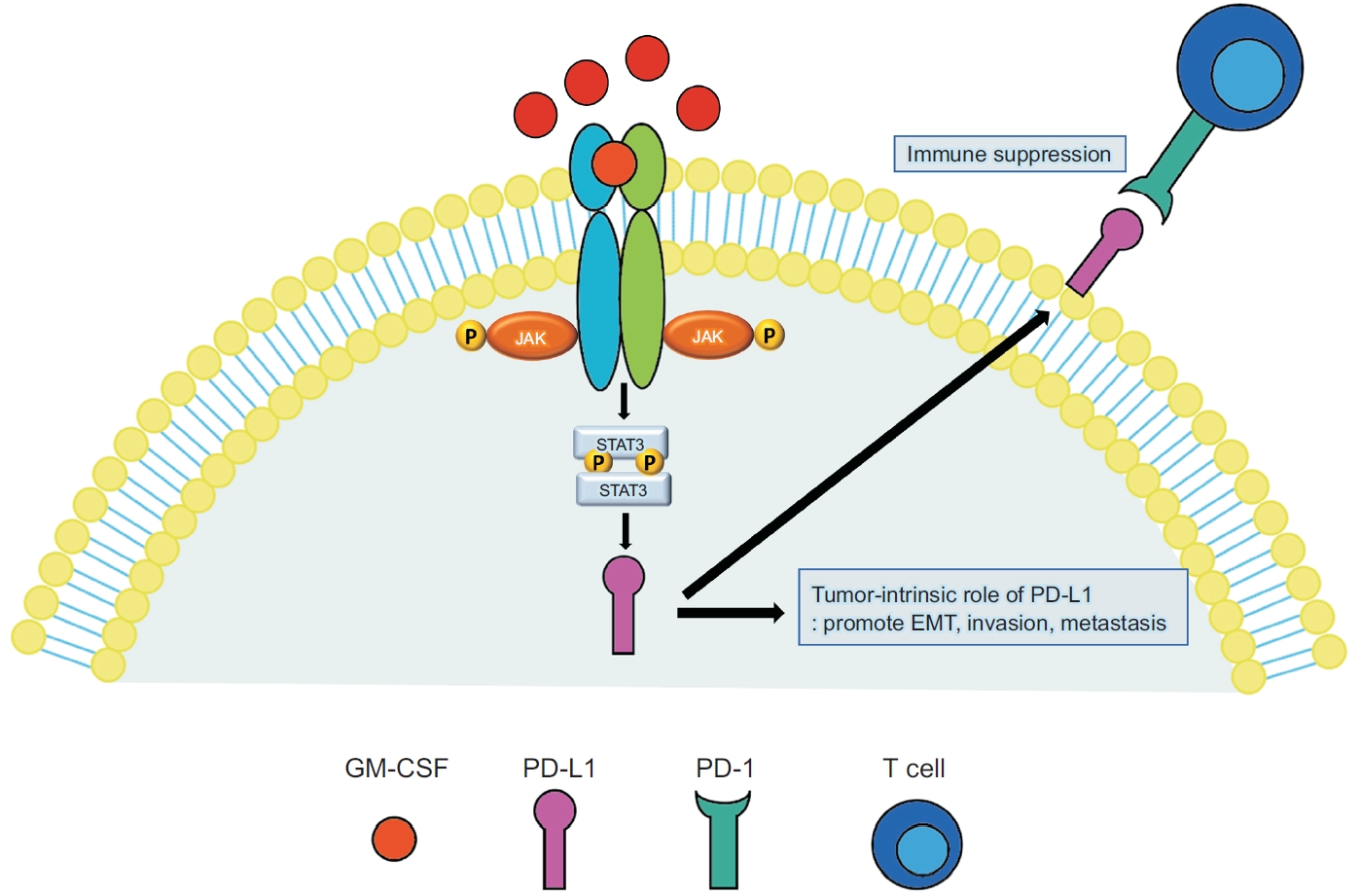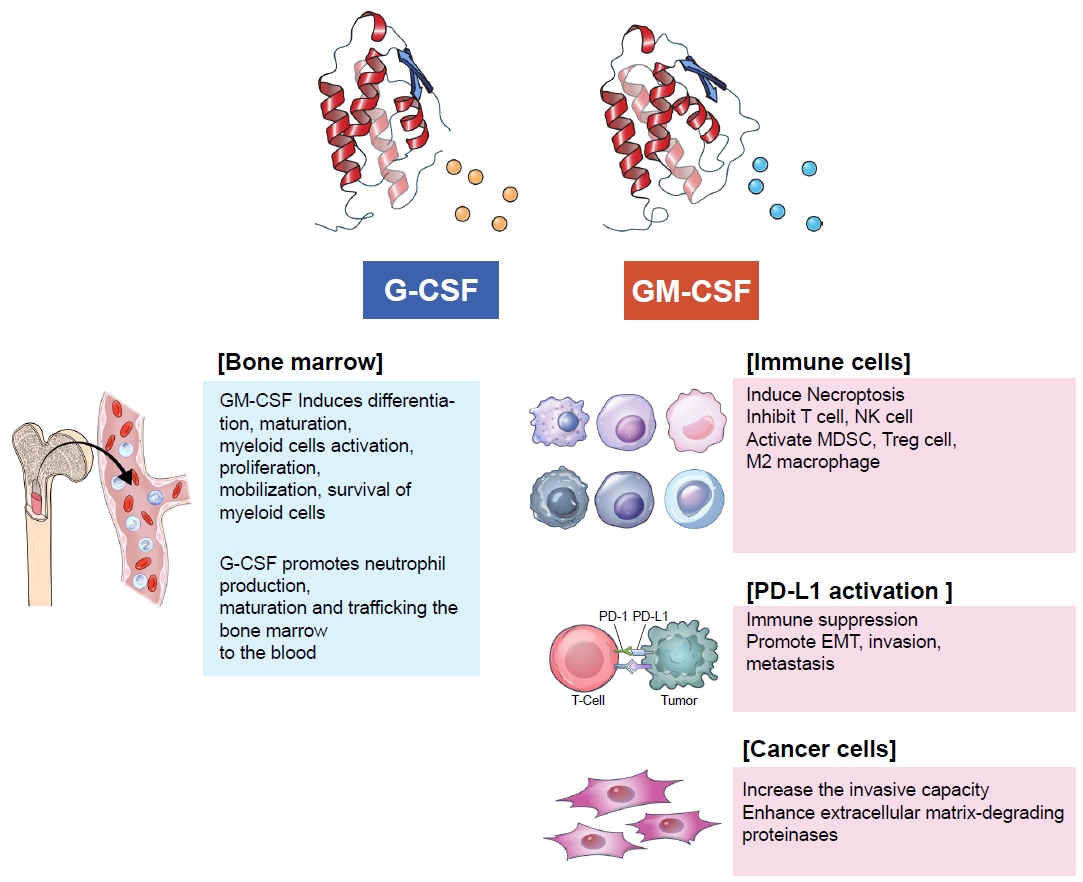 |
 |
| Tuberc Respir Dis > Volume 87(1); 2024 > Article |
|
Abstract
Notes
Authors’ Contributions
Conceptualization: Chung C. Writing - original draft preparation: all authors. Writing - review and editing: Park YH. Approval of final manuscript: all authors.
Funding
This work was supported by a National Research Foundation of Korea (NRF) grant funded by the Korean Government (MSIT) (No. NRF-2017R1A5A2015385, NRF- 2022R1A2C2010148) and a grant of the Korea Health Technology R&D Project through the Korea Health Industry Development Institute (KHIDI), funded by the Ministry of Health and Welfare, Korea (grant number: HR20C0025).
Figure 1.

Figure 2.

Table 1.
G-CSF: granulocyte colony-stimulating factor; GM-CSF: granulocyte-macrophage colony-stimulating factor; NSCLC: non-small cell lung cancer; NA: not available; PFS: progressionfree survival; OS: overall survival; TIL: tumor-infiltrating lymphocyte; SBRT: stereotactic body radiation therapy; PD-1: programmed cell death-1; PD-L1: programmed death-ligand 1.
REFERENCES
-
METRICS

-
- 0 Crossref
- 0 Scopus
- 1,242 View
- 148 Download
- ORCID iDs
-
Yeonhee Park

https://orcid.org/0000-0001-9537-1530Chaeuk Chung

https://orcid.org/0000-0002-3978-0484 - Funding Information
-
National Research Foundation of Korea
https://doi.org/10.13039/501100003725
2017R1A5A2015385
2022R1A2C2010148Ministry of Science and ICT
Korea Health Industry Development Institute
https://doi.org/10.13039/501100003710Ministry of Health and Welfare
https://doi.org/10.13039/501100003625
HR20C0025 - Related articles
-
The Role of Radiotherapy in Lung Cancer1985 June;32(2)
Clinical Application of Serum CEA, SCC, Cyfra2l-1, and TPA in Lung Cancer.1997 August;44(4)
Prognostic Value of the Expression of p53 and bcl-2 in Non-Small Cell Lung Cancer.1998 October;45(5)
The Expression of MUC1 and CD44s in Non-small Cell Lung Cancer.2002 February;52(2)



 PDF Links
PDF Links PubReader
PubReader ePub Link
ePub Link Full text via DOI
Full text via DOI Print
Print Download Citation
Download Citation



